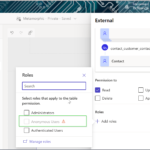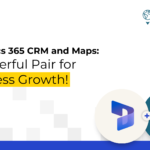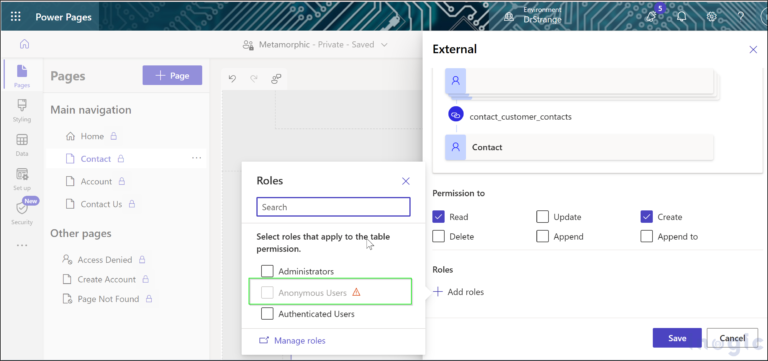We hear it everyday; marketers are at the forefront of unlocking AI. You’re being told to rethink your marketing strategies with AI, empower your teams to use it, and figure out how it can help transform your business . While AI promises to revolutionize everything from ad targeting to customer service, let’s admit it — there’s still a lot we don’t know. We all have foundational marketing questions when it comes to AI.
The good news? You’re not the only one with questions, both simple or complex. We asked our Trailblazer community what burning AI questions are on their minds and then got experts to answer. These might just be the answers you’re looking for, too.
What you’ll learn
Question 1: How does AI get smarter?
AI learns from large amounts of data, identifying patterns, and making predictions. The more data it processes, the better it gets at its tasks. Think of it as a child learning from experience – the more they interact with the world, the smarter they become. Let’s take a look at how one of our experts describes it.
“Feeding an AI model the right metadata to give it context for your customer data and how it relates to a customer’s relationship with your brand will help the model evolve and ‘get smarter’ over time.
Evaluating AI outputs for accuracy and providing feedback so the AI model can learn what is an accurate AI response vs. an inaccurate response will also help improve the model.
Additionally, learning to build the right prompts to extract the results you’re expecting is important.”
Natasha Martin
Marketing and Data Cloud Architect at Rosetree Solutions
Question 2: How can my marketing team start with AI?
“My advice is to walk, not run. There are so many options with AI, and it’s easy to get overwhelmed. Depending on which cloud you work in — Sales, Marketing, Service, or Commerce — different features will be available to start your AI journey.
Within Marketing Cloud Engagement, Einstein offers a range of features that help us plan our campaigns more efficiently:
- Choose the best time to send communications to each subscriber.
- Control how many messages our audiences receive to avoid frustrating users.
- Identify and create smart segments to offer personalized journey experiences.
- Use prompts based on our company’s data to generate images, email subject lines, and email copy.
Start by testing these features, integrating them into your solution design while analyzing the data from each campaign. You’ll soon see interesting and effective results.”

Rodrigo Daniel García Santander
Solution Architect at Orange Digital
Question 3: AI is reaching a maturity phase. How can we evaluate its efficiency and measure its accuracy and success?
“Lean into AI as part of your testing efforts. Begin by incorporating a peer-reviewed AI variant of content into your testing. Use the results of that testing to inform the AI what is working and what is not. Take your most effective content and break it down to it’s fundamentals for your audience such as voice and tones, promotion types, and communications preferences. Then provide your learnings back into the AI as renewed grounding.”

Allen Hoem
Director Product Management, Einstein Content Insights at Salesforce
Question 4: What does “trusted AI” actually mean?
Trusted data is when you can be confident that your data is accurate and secure. Let our Trailblazer elaborate:
“AI has grown by leaps and bounds. While it’s one of the most incredible technological advancements of our century, its learning process has been marked by the inappropriate use of data fed into it without prior consent and leaks of sensitive information that put both users and companies at risk.
To solve this problem, Salesforce adds an extra layer of security and trust, ensuring that all sensitive customer information travels masked through the Large Language Model (LLM). Once the output is generated, your entire request is forgotten by the AI.
This creates a Zero Retention Model, which ensures that your data is never stored outside of Salesforce’s trust layer, while fully leveraging the various available AI language models. Additionally, it ensures that your customer data is not compromised to train LLMs.
Your data always remains secure, private, and under your control.”

Rodrigo Daniel García Santander
Solution Architect at Orange Digital
Question 5: What marketing automation can be achieved with AI?
“The potential of AI is to drive end-to-end marketing automation, but that is not where most companies start. Today, AI can help you build a data-driven journey, create enough content to add more personalized paths, and help you learn from your previous campaigns to make better decisions in an automated fashion.
As your teams evolve, your effort might move from building out the automations to using your unique knowledge of your business and goals to provide the right grounding, building the right prompts, and developing the right check-points to be comfortable turning more of your processes over to AI.”

Kyle Robbins
Senior Product Manager, Marketing Cloud Einstein at Salesforce
Question 6: Will AI replace me one day?
The short answer is no, according to our Trailblazers. Here’s what they had to say.
“I’ve worked in the tech space for many years and there are always new features and products that make end users wonder if their role will no longer be needed.
The reality is that AI will enable marketing teams to work more efficiently and rely less on more technical roles to build campaign segments, automations, and personalized content.
In addition they’ll be able to build campaigns much faster, allowing marketing teams to spend more time strategizing and finding new creative ways to engage with their customers and drive revenue.”

Natasha Martin
Marketing and Data Cloud Architect at Rosetree Solutions
“No one knows your business better than you. AI can make you more efficient, but you can’t be replaced by it. A business can change everyday, but they need people to take care of it. AI can be a great tool to help you do tasks within your job, but it can’t learn the nuances of what the business needs everyday. It can’t know exactly what the market wants. Remember AI is a good tool that can help marketing teams, but it can’t be a good human.”

Victor Alberto Jimenez Pantoja
Solution Architect at Petco
AI presents both exciting opportunities and significant challenges. While the potential for transformation is undeniable, it’s important to understand what it can and can’t do. Don’t be afraid to ask your marketing questions. By seeking the answers, you can use AI effectively and drive meaningful results for your business. Just take it from our Trailblazer experts.
Get started with marketing agents
Build and customize autonomous AI agents to support your employees and customers 24/7.














